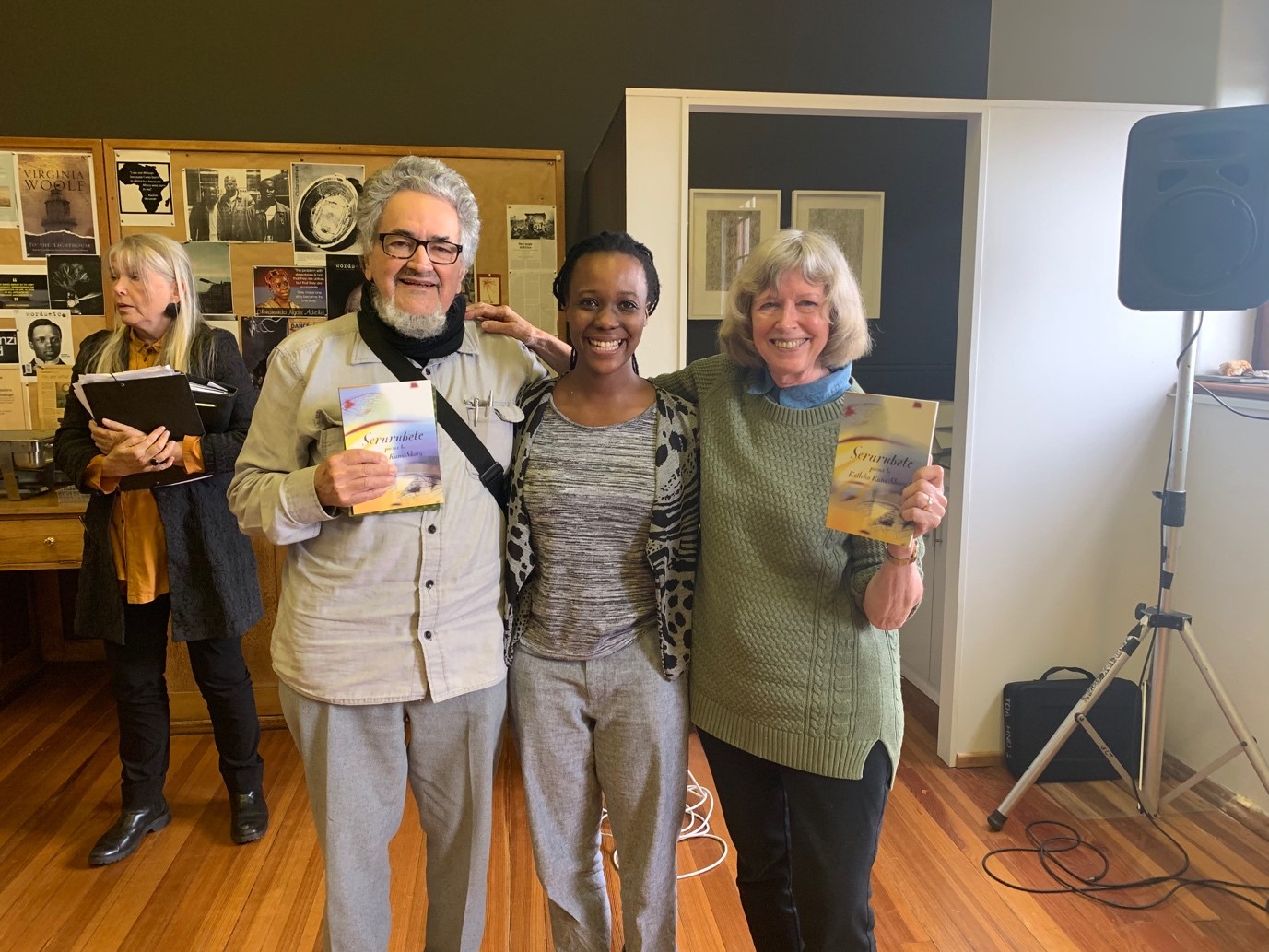
The APC’s Entangled Oralities Workshop took place from 15 to 16 April in the Jon Bernt Thought Space at UCT. The APC has in the past launched special foci on the visual, sound, spectral, and material archives. Our aim with this workshop was to inaugurate an intensive discussion centred on the oral, and orality, in the past and in the present. We intend to put a light on a range of orally-orientated materials, from oral accounts, narratives, praises, their transcriptions, recordings, performances, re-interpretations and utilisation in various forms in the present, encouraging discussion across disciplines.
Our special guests at the event were Prof. Karin Barber and Dr. Paulo de Moraes Farias (University of Birmingham), experts on the topic in West Africa, providing an opportunity for a comparative African perspective and enabling the cross-fertilisation of ideas. In this way, we want to challenge the persistent insularity of Southern African scholarship and widen our horizons with a continental approach. At the same time, we hope to develop a conceptual vocabulary, beyond the notion of ‘invention,’ while looking at the playing of the oral, and orality in the contemporary.
Day one began with issues around the consequences of ‘fixing’ izibongo into print and questions of translation, with John Wright and Mbongiseni Buthelezi’s work on the editing and translation of izibongo in the James Stuart papers. The discussion emphasised the fields of meaning and the other genres needed for the interpretation of the praises, which would be a recurrent theme throughout the workshop. The specific context in which oral narratives surface—their triggers so to speak—was also raised in the discussion on Ayanda Mahlaba’s paper on black women’s narratives, with a focus on how gender shifts some notions around the workings of the oral. Gender and context were also crucial in Precious Bikitsha’s paper on the ‘modern’ imbongi, Nontsizi Mgqwetho, in which the concept of ‘fording’ was utilised to understand the ‘travelling’ and ‘crossing’ that is enacted through the utilisation of orality.
Oral genealogies as a symbolic mode of discourse, their limits, the circumstances that make them possible and their entanglements with the written were the salient themes in the discussion of Susana Molins Lliteras’ paper. These linked with Paulo de Moraes Farias’ arguments on the importance of the modes of authorisation in relation to the secrecy of some oral genres. His discussion on ‘organic’ and ‘traditional’ intellectuals proved important in untangling the processes of how certain knowledge becomes established and recognised as ‘intellectual’ work; a theme that recalled the discussion at APC’s Research Development Workshop of the previous week. Karin Barber emphasised ‘opacity’ in her paper on praise poetry, and the importance of bringing other genres and modes to their interpretation. Moreover, her discussion on the question of the disjuncture of time, the multiple temporal points in the past to which the poetry belongs, would open a thread in the conversation for the next day.
Day two began with an examination in Wade Smit’s paper of the effects of utilising izibongo/izithakazelo as part of the historical methodology developed by RRR Dhlomo in his novels, which highlighted questions of genre and the multiple strategies offered by different forms. Carolyn Hamilton’s paper argued for the necessity of placing the ‘New African Intellectuals’ and James Stuart’s interlocutors in the same discursive world and thinking through what this ‘assemblage’ offers. Again, questions of ‘brokerage,’ of the category of ‘thinkers’ or ‘intellectuals,’ and the mobilisation of the past through time were all salient in the discussion. The discussion in Thokozani Mhlambi’s paper of the category of izinyanga, reworked some threads of the discussion from the previous day. Questions of expertise, and its confirmation, ‘specialised knowledge,’ and artisan or craft categories, linked with papers from West Africa, confirming the productivity of cross-continental discussions.
Rehana Odendaal’s paper relooked at questions of the oralising of experience, both in the oral testimony of the Robben Island prisoners as well as of the ‘oral history’ methodology itself. The last two presentations of the day combined oral performance with a discussion, actualising many of the themes considered in the previous days. Nashilongweshipwe Sakaria’s performance of oudano emphasised the ‘holding’ of space that is part of the ritual’s discourse, while Katleho Shoro’s powerful rendition of “Serurubele” explored the concept of beauty and the resonances that live poetry provoke in the audience. The workshop as a whole illuminated the convergences of work on orality from throughout the continent with regards to the entanglements of the oral, written and printed texts; the cohabitation of languages; how the contemporary reanimates the pre-colonial; the mobilisation of rhetorical strategies; and in the generation of a new conceptual language.